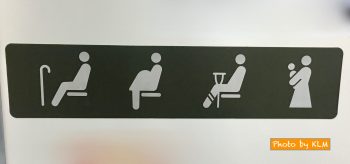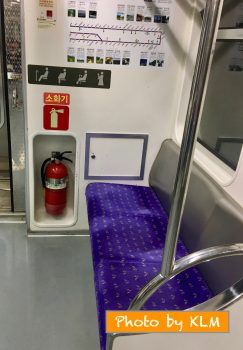7 Cultural Mistakes to Avoid in South Korea Posted by Kyung-Hwa on Aug 16, 2017 in Culture, Korean Language
There is a saying, “When in Rome do as the Romans do.” Knowing what is acceptable or not acceptable in the country where you are traveling will make your trip more enjoyable. If you plan to visit South Korea and need some cultural advice on some cultural don’ts, the following list will become useful to you in the future.

7 Don’ts in South Korea
- Do not wear your shoes when you enter someone’s house or certain restaurants that you have to sit on the floor to eat. Although many Korean houses follow a more western style of living, they often sit, eat, and sleep on the floor. Therefore, Koreans like to keep their floors clean and remove their shoes upon entering the house.
- Do not use just one hand. When you receive something from your supervisor or someone who is older than you are, remember to use both hands. This simple gesture might be overlooked to foreigners, but it is an important nonverbal way to show respect for the elderly or anyone that is considered above you in rank or position.
- Do not call someone with the palm upward. This is another gesture relating to your hands. In some western cultures, people make a gesture with their index fingers or hands with palm facing upward to indicate, “Come here, please.” Interestingly, this gesture can be offensive to Korean people. Koreans use this gesture to call only animals not humans. When you ask someone to come, you use a gesture somewhat similar to go away in America. Your palm facing downward, you motion your hand toward your body instead of away from your body.
- Do not tip in South Korea. This is one of don’ts that will make you happy. Even though there are a few places and occasions that you need to tip, tipping is not generally done in South Korea. If you are happy with the service, it is up to you whether you decide to leave a tip to your server at a restaurant, taxi driver, hairdresser, etc., in order to show your gratitude. Some might receive a tip with smile on their face, while the others might refuse to receive the tip with a saying in Korean, “아니요, 괜찮아요 (No, thank you.)”
- Do not sit in the reserved/priority seats. When you ride various public transportations in South Korea, try to refrain yourself from sitting in the reserved/priority seats. They are usually for disabled, elderly, or pregnant people. You will often witness many young Koreans with big hearts, sitting in the regular seats, offer their seats to the elders, little children, disabled people, or pregnant ladies on the buses or subways. These scenes might brighten your day in South Korea.

- Do not write people’s name with a red pen. Writing a Korean person’s name in red colored ink is considered to be a taboo in South Korea. In the past, only deceased people’s names were written in red ink, hence using red ink for a person alive would bring a bad luck or harm in their way. Even though this originated form an old custom, many people still avoid writing their names with a red pen. Refrain yourself from using a red pen for Korean names, and try to use a blue or black pen instead.
- Do not eat before the elders. Although you are very eager to dig into the scrumptious Korean food sitting right in front of you, it is polite to wait until the elders to pick up their spoons and have their first bites before you. While keeping the pace with these elders, you are encouraged to enjoy delicious Korean food.
I hope the above list of seven Don’ts will become useful to you during your visit to South Korea and make your trip more enjoyable.
감사합니다! (Thank you!)

Keep learning Korean with us!
Build vocabulary, practice pronunciation, and more with Transparent Language Online. Available anytime, anywhere, on any device.




Comments:
Sharon:
No. 5 – I disagree!!! Strongly! I have NEVER seen a young person get up for ANYONE everrrrrr! I am Australian. 48yrs old. Married to a Korean. I am a teacher and I regularly stand and give my seat to older people. I also ask younger people to get up for older people when I am standing. I think that the younger generation in Seoul definitely need a lesson in manners and respect of their elderly in regards to this point!
Kyung-Hwa:
@Sharon 안녕하세요,
I am sorry to hear your frustration and bad experiences with ill-mannered
young Koreans. I really appreciate effort you put into educating them.
I also have seen some young people who intentionally ignored the elderly
standing next to them and did not yield their seats. However, I have seen
more people like you and me who will give a seat to older people. I would
gladly let you know that the elderly do not need to plead for a seat when
they are on the same bus with my family members and friends: they will
willignly surrender their seats to the elderly.
Thank you for your comment!
Joe:
@Sharon I concurr. I never, ever saw any young person get up for an older person on a subway or bus. I never saw any man give up his seat to a lady. As a white person, I stood out in a crowd, on a jam-packed subway car, I regulary gave up my seat to older riders, women with children, or to a lady. The people were very kind and thankful.
Joe:
@Sharon I agree. I never, ever saw any young person get up for an older person on a subway or bus. I never saw any man give up his seat to a lady. As a white person, I stood out in a crowd. I remember being starred at while riding on a jam-packed subway car, where I regularly gave up my seat to older riders, women with children, or to a lady.